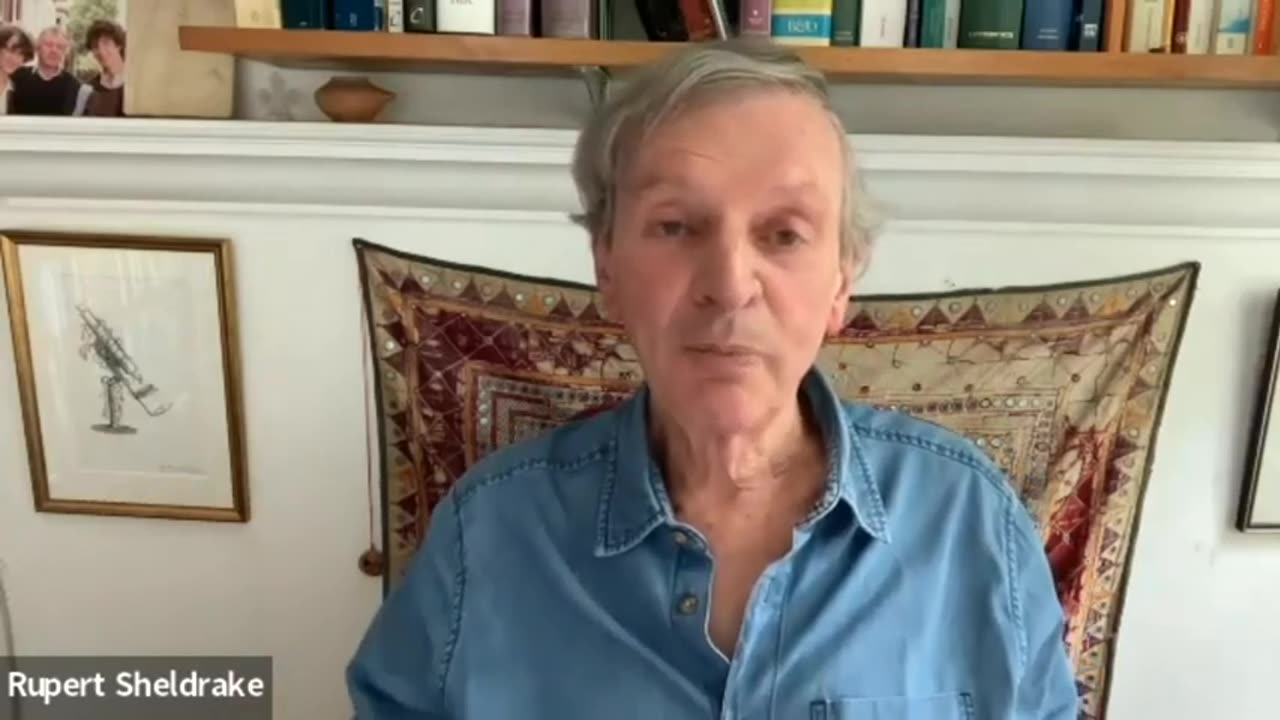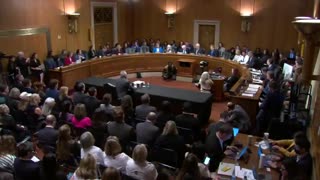Premium Only Content

Rupert Sheldrake-Randomness and Indeterminism: Sheldrake-Vernon Dialogue 89
Rupert Sheldrake
July 16, 2024
Randomness and Indeterminism: Sheldrake-Vernon Dialogue 89
https://www.youtube.com/watch?v=_TZ-8RMPHM8
Randomness and luck, fate and providence. How do these facets of life relate to one another? Or is everything, actually, mechanically determined with synchronicities, say, being no more than coincidences? In this episode of the Sheldrake-Vernon Dialogues, Rupert Sheldrake and Mark Vernon discuss the ways in which philosophers and scientists, ancient and modern, have imagined and explored notions of causality and sympathy in nature, alongside fortune and theurgy in relation to the gods. The ideas of Aristotle and Boethius provide a striking background against which to consider more recent scientific work. Rupert also demonstrates how fields can influence seemingly random effects using a Galton Board - a remarkably profound analogue for, say, practices such as prayer.
------
Dr Mark Vernon is a psychotherapist and writer with a rich academic background in physics, theology, and philosophy. He contributes to programmes on the radio, writes and reviews for newspapers and magazines, gives talks and podcasts. His books have covered themes including friendship and God, ancient Greek philosophy and wellbeing. His new book, out August 2019, is "A Secret History of Christianity: Jesus, the Last Inkling and the Evolution of Consciousness". He has a PhD in ancient Greek philosophy, and other degrees in physics and in theology, and works as a psychotherapist in private practice. He used to be an Anglican priest.
Mark's latest book is...
A Secret History of Christianity: Jesus, the Last Inkling, and the Evolution of Consciousness
http://www.markvernon.com/books/a-sec...
------
Dr Rupert Sheldrake, PhD, is a biologist and author best known for his hypothesis of morphic resonance. At Cambridge University, as a Fellow of Clare College, he was Director of Studies in biochemistry and cell biology. As the Rosenheim Research Fellow of the Royal Society, he carried out research on the development of plants and the ageing of cells, and together with Philip Rubery discovered the mechanism of polar auxin transport. In India, he was Principal Plant Physiologist at the International Crops Research Institute for the Semi-Arid Tropics, where he helped develop new cropping systems now widely used by farmers. He is the author of more than 100 papers in peer-reviewed journals and his research contributions have been widely recognized by the academic community, earning him a notable h-index for numerous citations. On ResearchGate his Research Interest Score puts him among the top 4% of scientists.
-
 6:29
6:29
Rolling With You
1 day agoThis is a must-watch. Rand Paul just WENT OFF at RFK Jr.'s hearing.
2.01K6 -
![Shadows Of Chroma Tower, Alpha Playtest [Part 1]](https://1a-1791.com/video/fwe2/1d/s8/1/5/Q/U/n/5QUnx.0kob-small-Shadows-Of-Chroma-Tower-Alp.jpg) LIVE
LIVE
iViperKing
12 hours agoShadows Of Chroma Tower, Alpha Playtest [Part 1]
1,462 watching -
 54:05
54:05
TheGetCanceledPodcast
9 hours ago $10.11 earnedThe GCP Ep.11 | Smack White Talks Smack DVD Vs WorldStar, Battle Rap, Universal Hood Pass & More...
87.5K18 -
 13:37
13:37
Exploring With Nug
13 hours ago $6.02 earnedSUV Found Underwater Searching For Missing Man Jerry Wilkins!
58.8K4 -
 2:58:21
2:58:21
xBuRnTx
8 hours ago1st Warzone Stream Online
41.1K2 -
 6:10:21
6:10:21
JdaDelete
1 day ago $6.53 earnedDino Crisis - Sega Saturday
78.2K4 -
 23:22
23:22
MYLUNCHBREAK CHANNEL PAGE
1 day agoUnder The Necropolis - Pt 5
75K32 -
 2:26:11
2:26:11
Jewels Jones Live ®
2 days agoWINNING BIGLY | A Political Rendezvous - Ep. 108
138K44 -
 2:04:49
2:04:49
Bare Knuckle Fighting Championship
4 days agoBKFC FIGHT NIGHT MOHEGAN SUN FREE FIGHTS
67.5K7 -
 25:09
25:09
BlackDiamondGunsandGear
11 hours agoYou NEED to be Training For Whats to Come
46.9K11